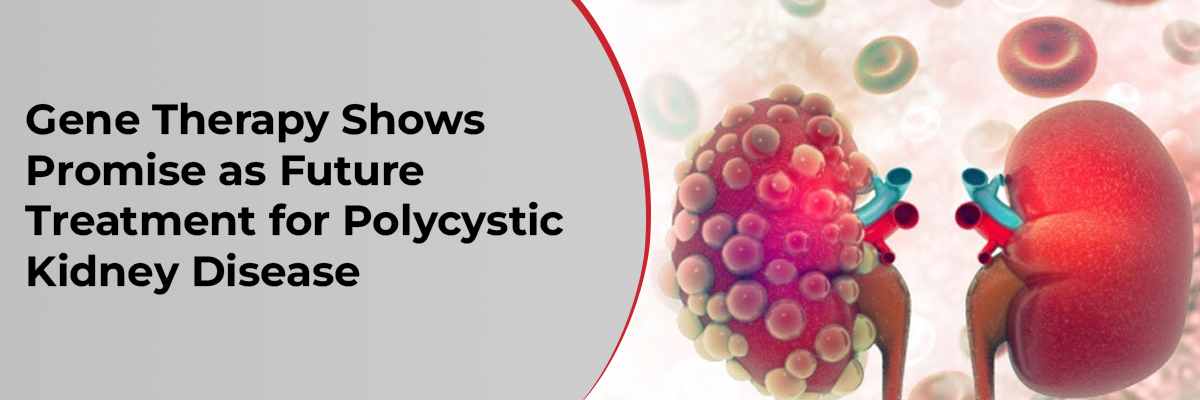
 IJCP Editorial Team
IJCP Editorial Team
Gene Therapy Shows Promise as Future Treatment for Polycystic Kidney Disease
Scientists are exploring gene therapy as a potential treatment for autosomal dominant polycystic kidney disease (ADPKD), a life-threatening inherited condition characterized by the formation of cysts in the kidneys and declining kidney function. A recent study published in Nature Communications has shown promising results, indicating that a specific fragment of the polycystin-1 (PC1) protein, called the C-terminal tail (CTT) fragment, may ameliorate disease development and help preserve kidney function in an ADPKD mouse model.
A mutation in either the PKD1 or PKD2 genes typically causes ADPKD. The researchers discovered that the enzyme Nicotinamide Nucleotide Transhydrogenase (NNT) had the most significant interaction level with PC1-CTT. NNT plays a crucial role in reducing oxidative stress and other metabolic functions.
In mice lacking both the NNT and PKD1 genes, the expression of the PC1-CTT fragment failed to prevent cyst formation or preserve kidney structure. The mice that had both the NNT gene and the PC1-CTT fragment experienced a reduction in cyst formation and preservation of kidney structure.
The researchers noted that the PC1-CTT fragment aided in balancing the metabolic profile for mice that lacked the PKD1 gene, ultimately decreasing indicators of oxidative stress. Additionally, the expression of certain enzymes involved in energy production increased in the ADPKD mouse model when the PC1-CTT fragment was present.
This groundbreaking study provides hope for developing potential gene therapies to address ADPKD and offers insights into the importance of gene therapy for various diseases. The researchers' findings suggest that targeting the PC1-CTT fragment and its interaction with NNT could serve as a promising approach to treating ADPKD and preserving renal function.

IJCP Editorial Team
Comprising seasoned professionals and experts from the medical field, the IJCP editorial team is dedicated to delivering timely and accurate content and thriving to provide attention-grabbing information for the readers. What sets them apart are their diverse expertise, spanning academia, research, and clinical practice, and their dedication to upholding the highest standards of quality and integrity. With a wealth of experience and a commitment to excellence, the IJCP editorial team strives to provide valuable perspectives, the latest trends, and in-depth analyses across various medical domains, all in a way that keeps you interested and engaged.










.jpg)








.jpg)


Please login to comment on this article